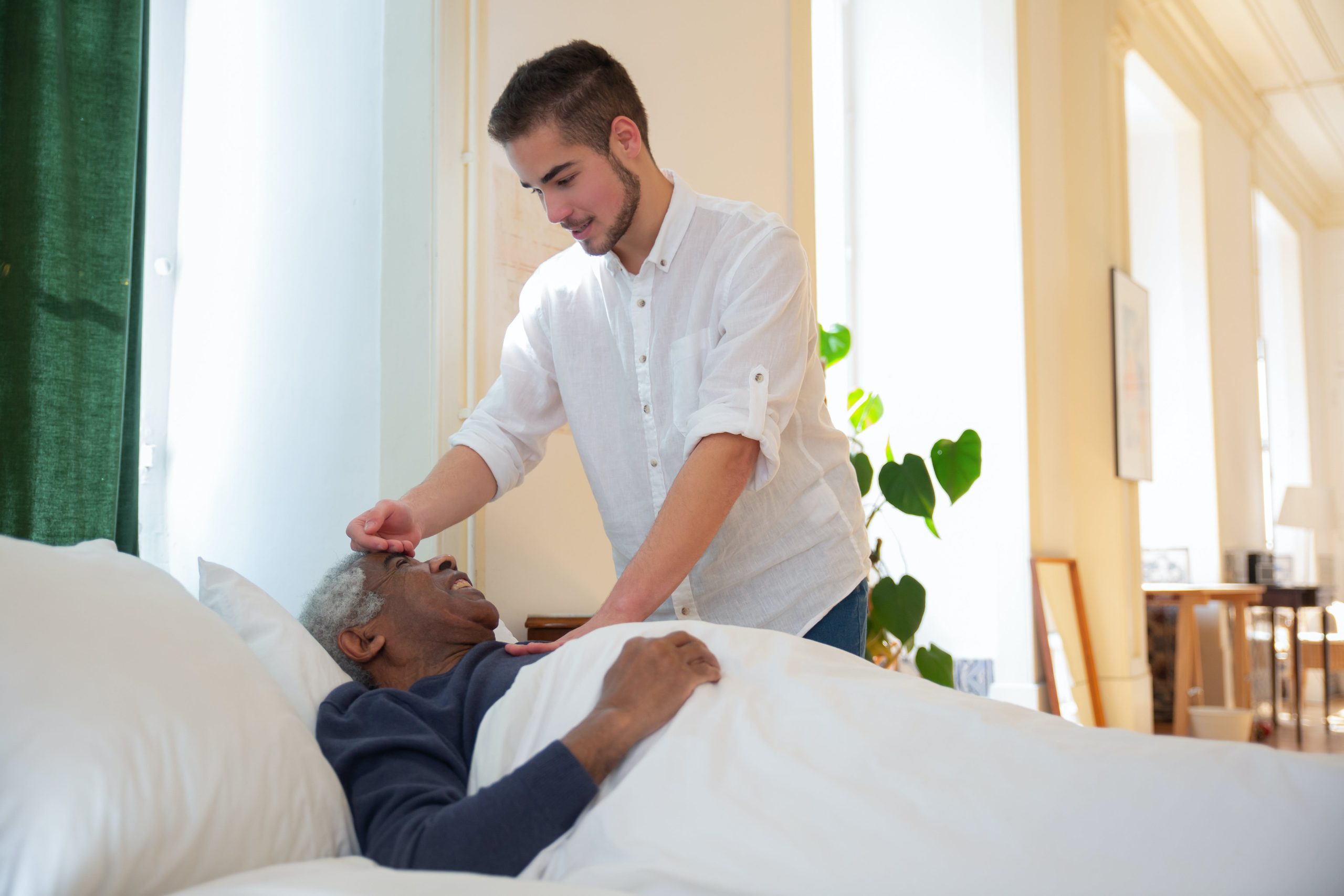Skip to content




Many older adults struggle with daily tasks, yet still want to age gracefully at home. Consequently, they may not make it obvious to you that they are struggling with daily activities, or that they need any help. That’s because for family members, knowing a loved one can no longer handle living alone without help can be difficult.
They may have been your hero or protector when you were young, so admitting they now need your help or the help of someone else is difficult to face. Knowing the signs someone needs home care or other assistance helps you identify the level of care necessary to meet their specific needs.
They may need a few visits a week and just some basic tasks. You and other family members may be able to provide that. Sometimes, they need more. That’s when you contact professionals to provide an in-home caregiver who can help.
When you find the right professional caregiver to help your loved one, it can provide you with tremendous peace of mind, while also giving your loved one the care they need. There are a range of care options available to meet the individual needs of any senior citizen who needs home care assistance.
Here are some of the most common signs your loved one may need home care:
They are having difficulty maintaining their residence or taking care of pets.
If the litter box is overflowing and the sink is filled with dirty dishes that still contain food, older people may find it hard to keep up with the daily tasks. Sometimes, it’s simply too hard to do or they run out of energy before they run out of jobs.
Ask if your loved one needs some help. If you can handle the few things necessary, it’s not a problem. If you have to stay all day to do it every week, it’s time to get outside help and secure at-home care.
Issues with personal hygiene may be an alert.
Personal hygiene issues can include issues with cleanliness or wearing the same clothing for weeks without changing. In general, it can simply mean an unkempt appearance and there will be noticeable changes. This is a sensitive issue that can occur for many reasons.
Depression and loneliness may be one reason for the lack of care about physical appearance and basic hygiene. The inability to take care of personal needs is another. In-home care professionals can help in both situations. If you find your loved one has issues with personal care it’s time to have a difficult conversation.
Personality changes and unexplained weight loss.
If you spend much time speaking with your loved one, you might notice small memory issues or issues with cognitive function. Minor memory issues can often be a normal part of aging, and perhaps only a little help is needed. If your loved one doesn’t recognize a place they go to frequently or don’t realize the year, or is having extreme mood swings, there could be more serious signs of dementia or Alzheimer’s disease, and a doctor should be notified. Also, when seniors need a little extra help, they may show signs of weight loss that can occur if they don’t remember to eat or find cooking for themselves overwhelming. Eating a poor diet that lacks proper nutrition can often be a clear sign that some professional help is needed at home.
- Check the cupboards to see if they have adequate reserves that haven’t passed the expiration date. Your loved one may need help getting to the grocery, cooking meals, or cleaning unusable food from the cupboard.
- If the house has become cluttered to the point it could be dangerous, at-home care may be necessary. One visit a week can make a difference. The at-home aid can clean and do simple maintenance or cook regular meals for the week that only require microwaving to reheat.
- If your loved one isn’t taking medication on time or skipping them altogether, having an in-home care provider stop by or call as a reminder is beneficial.
- You may not live close enough to visit your loved one very often. Having an at-home caretaker to provide companionship can be beneficial. The companion can also take them to appointments, the grocery, or social functions.
You have safety concerns.
Perhaps during the care of an aging parent, you notice some physical changes in your loved one. Or maybe you notice bruises or other injuries requiring a doctor’s visit or even a hospital stay for severe injuries. As our loved ones age, they may be more prone to accidents and falls around the house. Some medications and medical conditions can exacerbate these risks. In fact, falls are the leading cause of injury in older adults.
If your loved one is having frequent accidents and is otherwise showing signs of physical decline, senior home care services, combined with safety-proofing your loved one’s home, can help provide peace of mind and allay any health concerns you have pertaining to safety, falls, and near falls, which can be serious and frightening for seniors.
We give family caregivers peace of mind with our in-home care services.
To learn more and take the next steps, call us today at (405) 461-6175 or contact us today.
